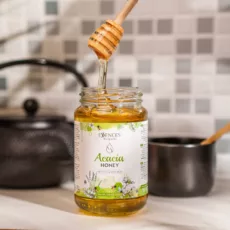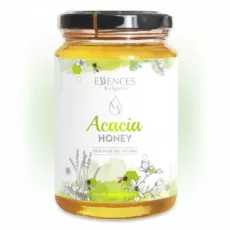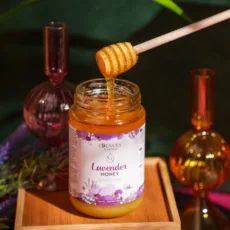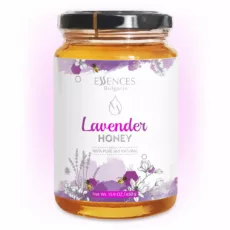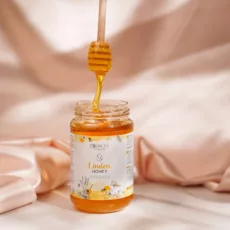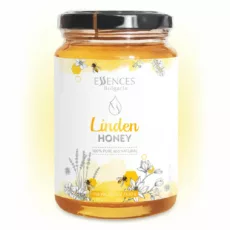Honey – Achieved Bliss
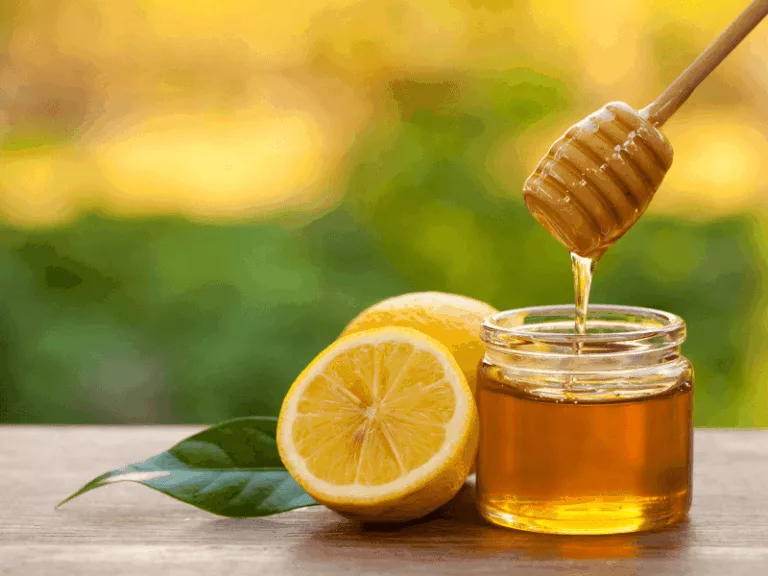
Within bees lies the mystical secret of creation. In ancient Egypt, they were called “collectors of the sun” and bearers of “solar wisdom.”
True wisdom itself is pure honey, a hidden cult of life. Honey is pure primal energy that bees, through their “mystery,” capture from the flower’s mysticism and produce from themselves. Bees are believed to be guardians of secret spiritual knowledge, which they transfer into honey, transforming it into a natural emanation and a symbol of achieved bliss.
Why is honey so important to us?
Since time immemorial, bee honey has been considered the food of the gods and an elixir of immortality. Its potential health benefits have been documented in ancient Greek, Roman, Vedic, and Islamic texts, as well as by philosophers and scholars such as Aristotle. Pythagoras advised his followers that their longevity was due to honey’s health properties. The famous physician Avicenna recommended honey as a food that increases productivity and prolongs life. According to him, honey preserves youth, sharpens the mind, and restores memory.
Bee honey is a sweet product made by honeybees from nectar or honeydew, i.e., “manna” from plants. It is collected and processed inside the worker bees’ bodies, then placed into wax cells where it ferments and matures.
What is the chemical composition of honey?
Literary sources claim that honey contains over 300 substances, and future studies may reveal even more.
Pure honey is a multi-component product, consisting mainly of carbohydrates—glucose and fructose (70–80%)—along with higher sugars in smaller amounts, water (15–18%), proteins and nitrogenous substances (around 0.4%), small amounts of enzymes, organic acids, mineral salts, vitamins, lipids, pigments, aromatic substances, and other biologically active components. This complex and unique composition defines its valuable properties and its use as high-energy food, as well as a preventive, medicinal, and cosmetic agent.
Minerals in honey include calcium, iron, potassium, zinc, sodium, phosphorus, sulfur, and magnesium. Organic acids include malic, lactic, citric, tartaric, gluconic, and others. Honey contains 17 amino acids from nectar and pollen, including lysine, histidine, arginine, asparagine, glutamine, glycine, tyrosine, and more.
Honey also contains vitamins: B1, B2, B3, B6, K, C, E, PP, and provitamin A (carotene). Vitamins in natural honey have higher pharmacobiological activity than synthetic vitamins. Their effects are enhanced by honey’s complex of bioactive substances (enzymes, phytohormones, trace elements) which support their therapeutic qualities.
A distinctive feature of honey is its enzymes, added by bees, such as invertase, diastase, dehydratase, and others. These enzymes regulate biochemical processes in living organisms. Academician Filatov reported the presence of biogenic stimulators in honey that enhance growth, vitality, and the estrogenic activity of organisms.
Honey has a unique chemical composition that preserves it indefinitely without spoiling (ancient jars of honey have been found intact in early Egyptian tombs). Its unusually low moisture content and low active acidity (pH 3.2–6.5) prevent the growth of bacteria and microorganisms.
The combination of all these beneficial compounds gives honey a specific quality—it prolongs life and ensures good health for as long as possible.
Health benefits of honey
Natural honey is a source of quick energy and a natural remedy with tonic, immune-boosting, antibacterial, and restorative effects. If there is a natural product that contains nearly all known vitamins, minerals, amino acids, and other valuable nutrients, it is bee honey.
Natural energy booster:
Honey is an immediate source of energy, a complex, high-calorie food containing multiple sugar molecules, especially glucose and fructose. Glucose is absorbed quickly, providing instant energy, while fructose is absorbed more slowly, offering a steady, healthy source of energy.
Fights insomnia:
Honey promotes good sleep. It stimulates insulin release, allowing tryptophan to enter the brain, which is a precursor of melatonin—the hormone that signals when to sleep. Honey also supports sleep by providing the energy necessary for normal bodily functions during rest.
A spoonful of honey before bed provides the liver with glycogen reserves for better sleep. A cup of warm milk with honey improves sleep duration and quality, as both contain tryptophan.
Boosts immunity:
Honey is a natural remedy for a strong immune system. Studies show it enhances the body’s defenses against flu and colds, especially during seasonal changes. It stimulates white blood cell production, which helps fight infections.
Alleviates seasonal allergies:
A study published in 2013 found that consuming honey helps prevent unwanted symptoms of seasonal allergies. Experts believe that honey introduces traces of pollen into the body. When the body is exposed to these allergens in minimal amounts, an immune response is triggered, prompting the body to produce antibodies against the pollen.
Frequent exposure to pollen over time leads to the accumulation of such antibodies in the body, gradually acclimating it to their presence. As a result, less histamine is released, which reduces the allergic response—providing effective support in combating seasonal allergies.
Antibacterial benefits:
In 2010, Dutch scientists reported that honey inhibits the growth of various bacteria, including E. coli, Salmonella, and Staphylococcus, due to a protein called defensin-1. This discovery may help develop new treatments for burns and antibiotic-resistant infections.
Soothes coughs:
Honey’s viscous consistency coats the throat, relieving pain and irritation. Its anti-inflammatory, antioxidant, and antibacterial properties help fight infections and speed recovery.
Supports heart health:
Regular honey consumption supports heart function and reduces cardiovascular risk. Antioxidants in honey strengthen the heart muscle and artery walls, protecting against blockages and poor circulation.
Promotes wound healing:
Since the dawn of civilization, our ancestors have treated wounds with honey. Honey is known for its cicatrizing properties, meaning it accelerates the healing of wounds with compromised skin integrity.
Professor Sylvain Fontaine explains that clinical studies led by Professor Descot in the 1990s demonstrated that the healing of open, exuding wounds was faster when treated with honey than with an antiseptic product.
The newspaper Le Populaire du Centre notes that lavender and thyme honey are used daily in abdominal surgery as a dressing for wounds that are difficult to heal.
Improves digestive health:
Raw honey has been associated with a positive effect on irritable bowel syndrome. The enzyme glucose oxidase, present in honey, produces small amounts of hydrogen peroxide, which can help combat gastritis. It has also been found that consuming honey instead of processed sugar helps prevent the harmful effects of mycotoxins and unhealthy gut flora, improving the quality of intestinal bacteria. Healthy gut bacteria, in turn, can help reduce bloating and neutralize gas.
Rich in antioxidants:
Real honey contains antioxidants, which are very important for overall health. Their function is to bind to free radicals, “neutralize” them, and help remove them from the body. A diet high in antioxidants can protect the body from inflammation, reduce the risk of chronic diseases, and slow down premature signs of aging.
Enhances skin health and beauty:
Honey is present in all types of skincare products – from exfoliants and cleansers to body lotions and face masks. As a natural moisturizer, raw honey binds to the moisture in the skin, leaving it flawlessly smooth, hydrated, and with a naturally soft, radiant glow.
Thanks to its antibacterial properties, it reduces skin inflammation and shortens the duration of breakouts, making it excellent for people with problematic skin.
Honey is one of those valuable natural ingredients that pairs well with all skin types and other active ingredients, making it an ideal addition to any skincare routine.
Homemade honey elixirs
Energy booster for strong immunity:
Ingredients:
- 400 g acacia honey
- 400 g walnuts
- 50 ml propolis tincture
- 1 lemon
Preparation:
- Grind the walnuts and place them in a large jar. Add honey, squeeze in the lemon juice, and finally add the propolis tincture.
- Stir well until smooth and seal the jar. Leave in a cool, dark place for at least 2 weeks.
Take 1 tablespoon daily, preferably in the morning on an empty stomach. During colds, increase to 2 tablespoons. Avoid consumption after 6 PM due to its energizing effect.
Общоукрепваща рецепта
Ingredients:
- 1 kg honey
- 5–6 lemons
- 15 finely chopped linden leaves
- 20–25 almond or apricot kernels
Preparation:
Add 5–6 washed lemons (chopped with peel, without seeds) to 1 kg honey, then 15 finely chopped linden leaves and 20–25 almond or apricot kernels. Take 1 tablespoon before each meal for overall strengthening.
